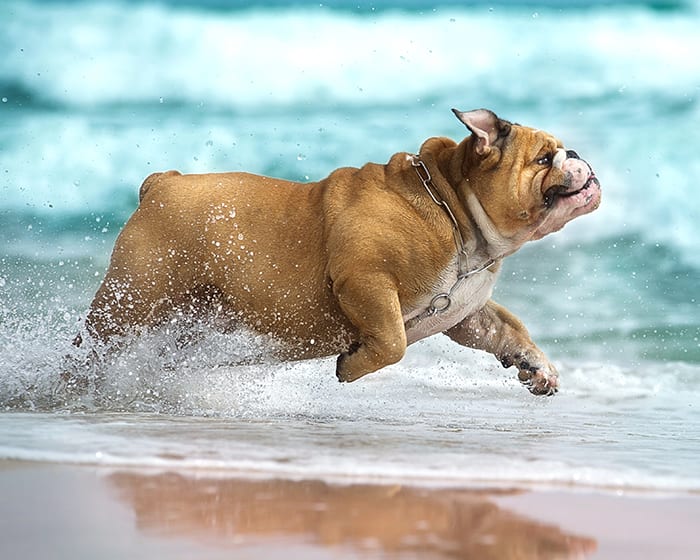From preventive to restorative veterinary dental health care and surgery, our Montecito Veterinary Center vets in Santa Rosa are here to provide compassionate care for your cat's or dog's oral health issues.
Expert Cat & Dog Dentist Services for Comprehensive Pet Dental Care
Routine pet dental care is a critical component of cats' and dogs' oral and overall health, but most of pets don't get the oral hygiene care they need to keep their teeth and gums healthy.
At Montecito Veterinary Center in Santa Rosa, we provide complete veterinary dentistry for your pet, from basics such as dental exams, teeth cleanings and polishing to dental x-rays.
We are also passionate about dental health education about home dental care for pet owners.

Pet Teeth Cleaning & Exams
At least once every year, your pet should come to see us for a dental exam. Cats and dogs who are more prone to dental health issues than others may need to see the vet more often.
The vets at Montecito Veterinary Center can assess, diagnose and treat oral health problems in cats and dogs.
- Symptoms
If you notice any of the following symptoms in your pet, it's time for a dental checkup.
- Tartar buildup
- Bad breath
- Loose and/or broken teeth
- Discolored teeth
- Bleeding from the mouth
- Pain or swelling in or around the mouth
- Reduced appetite or refusal to eat
- Abnormal chewing, drooling, or dropping food from the mouth
- Extra teeth or retained baby teeth
- Assessment
Before the exam, the vet will complete a thorough pre-anesthetic physical assessment.
If necessary, blood and urine analyses may be performed to ensure it's safe for your pet to have anesthesia. Additional diagnostics, such as chest radiographs or an ECG may also be required.
Once your pet is under anesthesia, we will perform a complete oral examination (tooth by tooth) and charting.
- Treatment
Next, we will clean and polish the teeth (including under the gum line) and take x-rays, if required. If the vet discovers advanced periodontal disease, a treatment plan will be developed and discussed with you.
- Prevention
During your visits to our hospital, we will discuss implementing teeth brushing at home. We can also recommend products to help improve your pet's oral health.
FAQs About Pet Dental Care
Here are some of the most frequently asked questions from our patients about pet dental care.
- Why do pets need their teeth cleaned?
If your pet has poor oral health, he or she is at higher risk for tooth decay and periodontal disease.
Similar to humans, when animals eat plaque sticks to their teeth and may build up into tartar if not brushed away on a regular basis.
This can result in infections in the mouth, tooth decay, loose or missing teeth, and periodontal disease. That's why regular dental care is critical to preventing disease or painful symptoms in the gums, for both cats and dogs.
- How can I tell if my pet has oral hygiene issues?
Did you know your pet may behave differently if they have oral health issues? They may paw at their mouth or teeth, or drool excessively (and the drool may contain blood or pus). They may also stop grooming sufficiently, grind their teeth or yawn excessively.
Other symptoms of oral health problems include tooth discoloration, bad breath, and swollen gums. Some pets may even suffer from pain that keeps them from eating. You can read more about symptoms to the left under Pet Teeth Cleaning & Exams.
- What long-term problems can poor oral health potentially cause in my pet?
Besides causing problems ranging from cavities and bad breath to severe periodontal disease, oral health issues and conditions can lead to disease in the liver, kidney, heart and other areas throughout your pet's body.
Cysts or tumors may develop. Your pet may also not feel well in general (if you've ever had a toothache, you know how it can affect your mood!). In addition, diseases related to oral health conditions can shorten the lifespan of your pet and cause significant pain.
This is why regular pet dental care is so essential to animals' physical health and wellbeing.
- What happens during a pet tooth cleaning appointment?
During your pet's regular oral exam, the vet will inspect his or her mouth to spot any oral health conditions or symptoms requiring treatment.
The vet will clean tartar and debris from your dog's or cat's teeth. If gingivitis, cavities, or other conditions need to be addressed, the vet will review these and provide advice on which actions should be taken.
In some cases, surgery will be needed to treat serious issues. Your pet will be provided anesthesia before the dental procedure to ensure they do not experience any pain and are comfortable. However, special care will be required following surgery.
If you notice any of these symptoms in the last question or those to the left listed under Pet Teeth Cleaning & Exams, schedule a dental care appointment with us for your cat or dog.
- What should I do at home to keep my pet’s teeth clean between dental appointments?
At home, brush your pet's teeth regularly and provide dental chew toys to help remove plaque.
Do not allow them to chew on things that will damage their teeth, such as objects, toys, or bones that are too hard. Always contact your vet with any questions or concerns you may have about your pet's oral health.
Veterinary Dentistry: Anesthesia & Your Pet's Oral Health
Cats and dogs often react to dental procedures by struggling. To put less stress on animals, we provide anesthesia to all patients. This also allows us to x-ray their mouth as required.
